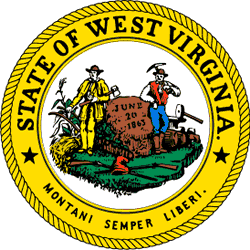Two new gambling bills proposed in West Virginia have passed through the State Senate Judiciary Committee, Bloomberg News has reported.
The first bill would lower an annual fee that the state’s four existing racetrack casinos pay on table games from $2.5 million to $1.5 million. Money derived from taxing the table games is currently used toward home health programs to benefit senior citizens in the state, a loss that would be replaced by eliminating a subsidy on slot machines.
Currently West Virginia foots the bill for fifty percent of the purchase of new slot machines, a figure that would be reduced to twenty-five percent under the new legislation. Casinos in the neighboring states of Ohio and Pennsylvania are offered no such subsidies, though Ohio taxes its slots at a lower rate. Pennsylvania casinos are subject to a much higher tax rate than in West Virginia.
To legislators, going after the slots revenue makes sense in light of the fact that revenue has been down for table games at West Virginia racetrack casinos, a trend that is expected to continue in light of competition from Pennsylvania and Ohio properties.
Said State Senator Herb Snyder, who put forward the amendment that targets the slots revenue, “You could not possibly fool with table game revenue. It’s not big enough. You go to the one that’s plump.”
Casino interests are not responding favorably to the suggested subsidy reduction, pointing out that the same competition the state is facing in the table games market requires that the properties be constantly updating their selection of slot machines.
Jim Simms, president and general manager of the Wheeling Island Hotel-Casino-Racetrack, remarked this week on the new bill, saying, “We are hoping the Finance Committee can repair this bill. We are committed to keeping the best and most recent slot machines on the property, so we don’t want to lose our ability to reinvest in those.”
The second gambling bill advanced by the Judiciary Committee this week would allow for the construction of a new casino property to be located in Franklin near the Virginia border, with the hopes of attracting customers from the areas of Richmond and Lynchburg. As such, supporters of the new casino plan have argued that the addition of another casino in the state should not poach revenue from those already in existence.
If built, the new casino could provide 300 new jobs in the area, which is slated to lose about that many positions when the US Navy shutters a facility there in 2016.

